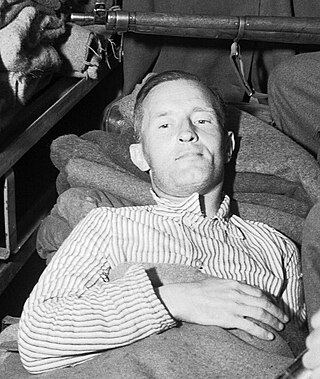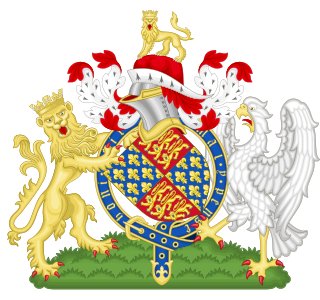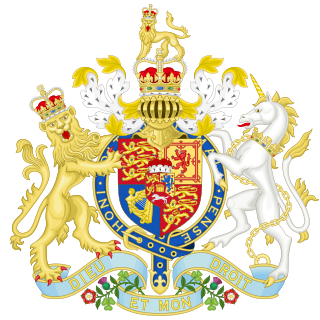
Forgery is a white-collar crime that generally consists of the false making or material alteration of a legal instrument with the specific intent to defraud. Tampering with a certain legal instrument may be forbidden by law in some jurisdictions but such an offense is not related to forgery unless the tampered legal instrument was actually used in the course of the crime to defraud another person or entity. Copies, studio replicas, and reproductions are not considered forgeries, though they may later become forgeries through knowing and willful misrepresentations.
In criminal law, property is obtained by false pretenses when the acquisition results from the intentional misrepresentation of a past or existing fact.

Under the law of the United Kingdom, high treason is the crime of disloyalty to the Crown. Offences constituting high treason include plotting the murder of the sovereign; committing adultery with the sovereign's consort, with the sovereign's eldest unmarried daughter, or with the wife of the heir to the throne; levying war against the sovereign and adhering to the sovereign's enemies, giving them aid or comfort; and attempting to undermine the lawfully established line of succession. Several other crimes have historically been categorised as high treason, including counterfeiting money and being a Catholic priest.
Bank fraud is the use of potentially illegal means to obtain money, assets, or other property owned or held by a financial institution, or to obtain money from depositors by fraudulently posing as a bank or other financial institution. In many instances, bank fraud is a criminal offence.

The Treason Act 1351 is an Act of the Parliament of England wherethrough, according to William Blackstone, common law treason offences were enumerated and no new offences were, by statute, created. It is one of the earliest English statutes still in force, although it has been very significantly amended. It was extended to Ireland in 1495 and to Scotland in 1708. The Act was passed at Westminster in the Hilary term of 1351, in the 25th year of the reign of Edward III and was entitled "A Declaration which Offences shall be adjudged Treason". It was passed to clarify precisely what was treason, as the definition under common law had been expanded rapidly by the courts until its scope was controversially wide. The Act was last used to prosecute William Joyce in 1945 for collaborating with Germany in World War II.

The Criminal Law Act 1967 is an act of the Parliament of the United Kingdom that made some major changes to English criminal law, as part of wider liberal reforms by the Labour government elected in 1966. Most of it is still in force.
An immigration officer is a law enforcement official whose job is to ensure that immigration legislation is enforced. This can cover the rules of entry for visa applicants, foreign nationals or those seeking asylum at the border, detecting and apprehending those that have breached the border and removing them, or pursuing those in breach of immigration and criminal laws.

The Indictments Act 1915 is an Act of the Parliament of the United Kingdom that made significant changes to the law relating to indictments. The law relating to indictments evolved during the seventeenth and eighteenth centuries and became lengthy, confusing and highly technical to the point where some barristers specialised entirely in drawing up indictments. During the nineteenth century several Acts were passed by Parliament to correct this problem, but none were entirely successful. In 1913 Lord Haldane created a committee to draw up a draft bill reforming the law of indictments, which became the Indictments Act 1915.

The Official Secrets Act 1920 was an Act of the Parliament of the United Kingdom.

The Forgery Act 1861 is an act of the Parliament of the United Kingdom of Great Britain and Ireland. It consolidated provisions related to forgery from a number of earlier statutes into a single Act. For the most part these provisions were, according to the draftsman of the Act, incorporated with little or no variation in their phraseology. It is one of a group of acts sometimes referred to as the Criminal Law Consolidation Acts 1861. It was passed with the object of simplifying the law. It is essentially a revised version of an earlier consolidation act, the Forgery Act 1830, incorporating subsequent statutes.

The Counterfeiting Coin Act 1741 was an Act of the Parliament of Great Britain which made it high treason to counterfeit silver, copper or brass coins, where previously the crime of counterfeiting such coins had been a misdemeanour. Its long title was An act for the more effectual preventing the counterfeiting of the current coin of this kingdom, and the uttering or paying of false or counterfeit coin. It has since been repealed.

The Forgery and Counterfeiting Act 1981 is an Act of the Parliament of the United Kingdom which makes it illegal to make fake versions of many things, including legal documents, contracts, audio and visual recordings, and money of the United Kingdom and certain protected coins. It replaces the Forgery Act 1913, the Coinage Offences Act 1936 and parts of the Forgery Act 1861. It implements recommendations made by the Law Commission in their report on forgery and counterfeit currency.

The Forgery Act 1913 was an Act of the Parliament of the United Kingdom. It provided a definition of forgery and created several offences of forgery and uttering, while repealing numerous other offences of forgery, thereby consolidating the law of forgery. It did not extend to Scotland.

The Forgery Act 1870 is an act of the Parliament of the United Kingdom. The whole act, so far as unrepealed, was repealed by section 33(3) of, and part I of schedule 3 to, the Theft Act 1968. This act was repealed for the Republic of Ireland by sections 1 and 2 of, and Part 4 of the schedule to, the Statute Law Revision (Pre-1922) Act 2005.

The Forgery of Foreign Bills Act 1803 was an Act of the Parliament of the United Kingdom. Prior to its repeal in 2013, it created offences of forgery of foreign instruments in Scotland.
The Penal Code is a law that codifies most criminal offences and procedures in Malaysia. Its official long title is "An Act relating to criminal offences" [Throughout Malaysia—31 March 1976, Act A327; P.U. (B) 139/1976]. The sole jurisdiction of Parliament of Malaysia is established over criminal law in Malaysia.
Richard Harding was a British forger. He was capitally indicted and convicted of the forgery of brass duty legal stamps placed on the Ace of Spades and the selling and uttering of playing cards with the same, while knowing such duty stamp to be false. He was hanged at the Old Bailey, London, England in 1805.

The Coinage Offences Act 1861 was an act of the Parliament of the United Kingdom which codified various coinage offences. It was repealed and replaced by the Coinage Offences Act 1936.

The Servants' Characters Act 1792 was an act of the Parliament of Great Britain. It came about following a petition to Parliament by London and Westminster residents, concerned over a perceived rise in the use of false references by servants to gain employment. The use of false references to gain entry to a house had been linked to a number of burglaries across the country. The act criminalised the creation of false references by employers or servants and the misrepresentation by servants of their employment history. Only a single successful prosecution was made under the act, in 1910, and it was repealed in 2008.









